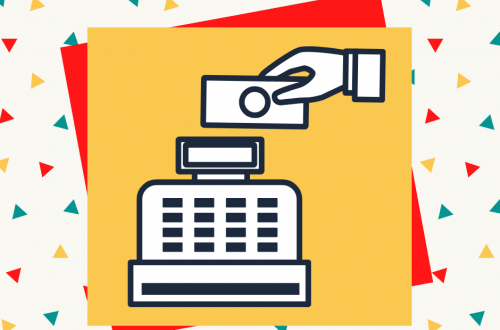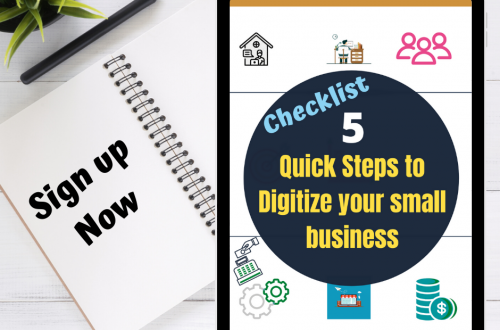
How to write a business plan for your Blog

If you’re running a blog or thinking of starting one, you’re probably interested in making it a profitable endeavor.
Working for yourself, on your own terms, from home – what’s not to like? And if you’re going to treat your blog like a business, then you need to write a business plan.
But how do you write a business plan for your blog?
There isn’t much to it – it’s a business plan like any other.
Meaning that it needs to include some details about your business, such as your business goals, target audience, strategy, etc. but also how you’re going to grow your audience, monetize your blog, etc.
The truth is that there is no one “correct” way to make a business plan.
This is just one version. You may tweak it and change it to suit your needs and help you with your short-term and long-term plans.
Why do you need to write a business plan?
But why do you even need a business plan?
A blog isn’t a store or some other traditional business – does that mean that you still need to treat it like one? In short, yes.
While it’s an extra step, a business plan is important for your own understanding of how your blog is going to work, how you need to set it up, and how it’s going to make money.
Not only that, but it helps you organize your business.
If you take the time to plan everything and create actionable steps, you’ll be able to easily follow through, when the time comes.
Having a clear picture of what is going to happen and what is expected of you next is extremely important. It simplifies the process tremendously.
Understand the business better
Sure, you know what your job is and how to do it.
You’re the best at it.
But when it comes to the way the business operates, and what the processes are, particularly in order to obtain profit, you may need more information.
Or just a way to organize your thoughts better.
That’s where learning to write a business plan comes in.
It details the steps you need to take and how to make your business the best it can be.
Understand financials better
Just like the way a business operates may not be the most straight-forward thing in the world, neither is the financial aspect.
The way cash flow is supposed to work can be difficult to understand if you’re not a financially-oriented person.
Especially since bloggers tend to be creative, this kind of plan can really help achieve a better understanding of the way your blog makes money.
Organize yourself for the long-term
Not least of all, a business plan helps you prepare for the long-term.
If you organize your business now and plan for the next few months or years, then you’ll have a clear direction.
To write a business plan, you need to have a vision and a plan (including projections) of how you want your blog to grow.
If you are looking for the one document that will help you brainstorm ideas and build your blog business plan.
Consider the home business owner planner from thehomebusinessowner shop.
The Home business planner is designed to help you brainstorm your ideas, and plan your business from product initiation to product delivery.
With the Home business planner, your blog business plan will be in place in a few days.

Want to know how to use each of the sections? read my product guide.
Business plan
So, what should your blog’s business plan feature? Here are a few suggestions for sections to cover.
Business idea/executive summary
The very first thing you need to write out is, essentially, what your business idea is. That includes everything, from the brand name to your image and what you are “selling”, as a brand.
Your executive summary also needs to include your general mission statement – what are you looking to achieve?
Where do you want your blog to go? The obvious answer – to make money – is not going to cut it.
Here, you’ll want to include the philosophical ideals you’ve built your blog upon.
For example, that you wanted to help people, educate them, or simply provide an online space for people who share the same passion or are interested in the same thing.
It should be the expression of your deepest philosophical convictions.
If you’re planning on forwarding this to a bank or potential investor, you’ll also want to include essential information about the competition, financial plans, etc.
Who is your target audience?
In order to be able to achieve your mission statement, as well as your business goals (we’ll talk about that in just a second), you need to have a very clear vision of who your target customer is. If you’re not sure right off the bat, ask yourself some questions:
- Who are your blog’s readers?
- What are they looking for on your blog?
- Where are they located?
- What is their job?
- How old are they?
- What do you have in common with them?
What are your business goals?
And since you’re getting organized and analytical, you’ll also want to think about what your actual business goals are.
What do you want your blog to achieve, as a business?
It’s easy to mistake this for the mission statement, but they’re not the same thing.
The mission statement is all about what you want your blog to achieve, from a philosophical point of view (for example, you want to touch people’s hearts, help them out, etc.).
When it comes to business goals, we’re talking about what you want your blog to achieve as a business.
For example, you may be aiming for a certain number of followers. Or you want to exceed a certain financial limit.
Or you may desire to enter a certain league of bloggers that get to work with the most well-known brands. Whatever it is, it should be related to your success as a business, not strictly as a blog.
Strategy
You can’t go into battle without a strategy. Your blog isn’t going to take off (and more importantly, make money) by chance.
You need to plan and strategize for that.
Every single aspect, including branding (and differentiation from other blogs), building your audience, and monetizing your blog needs to have a clear strategy set in place.
What is unique about your blog?
When talking strategy, the first step is to figure out how you’re going to be different than other blogs on the market.
There will probably be similar blogs to yours, no matter what niche you’re in.
However, you can always make sure yours has a twist the others lack. That ensures blog differentiation, and it strengthens your brand.
How will you build your audience?
The other thing you need to strategize for is audience building. Sure, people will come to you organically, to a certain degree, but if you want to make this a successful business, you’ll want to have a plan for growth.
Some bloggers rely on guest posting, others like to organize giveaways. Social media is definitely an important tool in audience building, so you’ll want to take full advantage of it.
The latter is especially convenient because it’s free. It doesn’t cost you a thing to promote yourself online.
How will you make money?
Finally, you’ll ideally need to have an idea of how your blog is going to make money.
The best way to monetize it will very much depend on the type of blog you’re running and what works for your audience.
Here are some of the most common types of monetization for blogs.
Advertising
Advertising is one of the tried and true means of monetizing.
You just sign up with Google AdSense, and ads will be placed on your page. The ads will typically be in line with your content, but they may also be completely random.
Ads may not always be aesthetically pleasing, and they can cheapen the look of your page. However, they can also be a good way to break up the content.
Affiliate marketing
This is used by most blogs, and while it doesn’t seem like much at the start, it can build up to a decent income stream.
The trick with this is to have multiple affiliate links, or alternatively, place links that are likely to get a lot of traffic and purchases.
The way they work is that you place links in your content (to Amazon products, for example), and every time one of your readers clicks through and makes a purchase, you receive a small percentage of that sale.
Individually, it’s not a lot. Multiplied by thousands of followers, however, it adds up.
You can start by signing up with Thehomebusinessowner Shop Affiliate program.
They give a 50% sales commission for each sale that you make. To sign up, click the button below.
Brand deals & sponsorships
This is the big moneymaker, for most blogs. When you get brands wanting to pay you to post about them or mention them, you know you’ve made it.
Generally speaking, branded posts are a double-edged sword. On one hand, the pay is much better than any other post you can make. On the other hand, audiences don’t always take kindly to sponsorships.
Readers may feel, somewhat understandably, that it is deceiving for a blogger to make posts about products or brands when they’ve accepted money from them.
There is a question of integrity, here, and how possible it is to remain unbiased when taking money to make a post.
It can be seen as just another ad, essentially, and there’s recently been some hullaballoo about disclosure and how honest bloggers really are about sponsorships.
Email marketing
What can also work are email marketing and newsletters – you get to advertise yourself and your products directly in your followers’ inboxes.
The more people read your emails, the more likely they are to purchase something from you.
When you manage to reach them and retain their attention even outside your blog, that’s when they’re loyal and will trust you with their money.
If you are looking for an email software to use, consider using SENDLANE, their services are quite affordable, at 9.85 dollars a month you can send thousands of emails to your subscribers.
Selling e-books, courses, etc.
If the blog you’re writing is in the right niche, you can even make some real money from selling digital products you’ve created.
For example, this blog sells digital products that help stay at home moms start a home business.
You can check out the products by clicking the picture below.

E-books or online courses can be great money-makers, and the profit margin is excellent.
You essentially only work on creating the product one time, and then profit with every sale.
There are no overhead costs and no printing costs. And you can advertise them via email marketing!
Final thoughts on how to write a business plan
As you can see, to write a business plan is an integral part of your fledgling business, whether that’s a blog or another type of small business.
You may think that a blog doesn’t require a business plan because it’s not a traditional business, but you’d be mistaken.
Business plans for blogs are not only necessary but easy to create, as long as you know what you should feature.
At its core, a business plan for your blog is meant to help you out, more than anything else.
It should help you understand your own business better and how to run it in order to achieve as much success as possible.
That includes financial success, but also aspects such as the number of followers, readers, etc.
This post was contributed by Julia Briggs from the broadband-search.com
Broadband-search.com provides useful information that enables you to choose the best internet service for your small business.
To get posts like these sent to your inbox, sign up with my email list.




